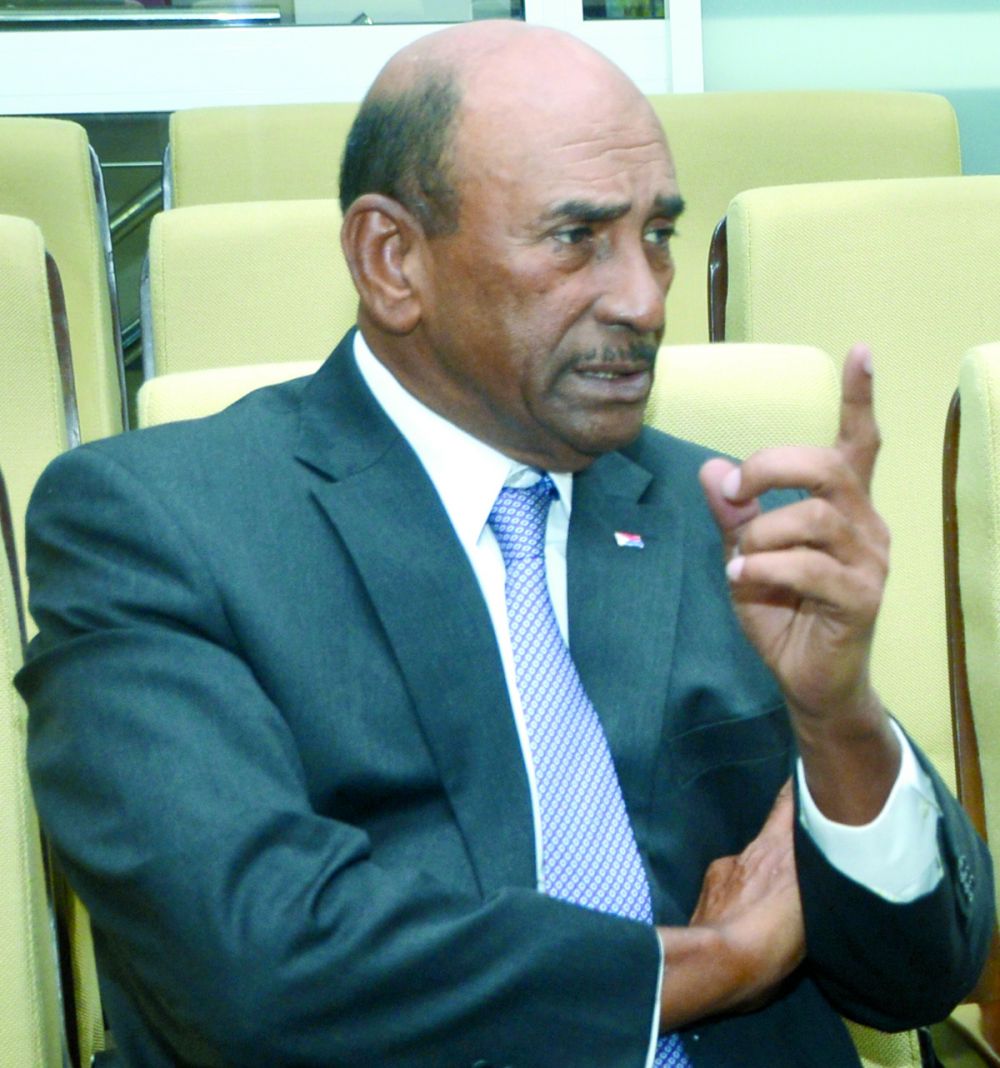Chinese promise 1 million tourists; build large hotel and apartment project
One million Chinese tourists every year, the construction of a 326-room hotel and showroom and 450 apartment suites in Belair at the location of the former Barbaron project will change the landscape of St. Maarten’s economy forever. On September 17, a 30-strong delegation from China will come to St. Maarten for the groundbreaking ceremony for the Belair project. “Ladies and gentlemen, we have struck the jackpot,” Finance Minister Richard Gibson said yesterday at a town hall lecture he hosted at the university of St. Maarten where he announced the Chinese project that could in one go double the size of the local tourist economy.
“The future looks extremely bright,” the minister said. Earlier in his address he revealed that he had been negotiation for the past couple of months, together with Prime Minister William Marlin with representatives of the Chinese private and public sector.
“A company has been formed on St. Maarten owned for 50 percent by the Chinese government and for the other half by the Chinese private sector. “This company purchased a parcel of land next to the Belair Beach Hotel, hired engineers and architects to prepare construction plans for a 326-room hotel and showroom on the property and 450 apartment suites,” Minister Gibson said.
The apartments will be sold to Chinese companies for use by their executives and staff as a hub for commercial activities they intend to pursue in the rest of the Caribbean and Latin America. “St. Maarten will be the hub for these activities,” Minister Gibson said.
“During the discussions held between the prime minister, myself and the Chinese representatives they committed to take the necessary steps to generate tourism from China to St. Maarten. In fact they have promised to see to it that at least 1 million of the 100 million annual tourists China produces will travel as tourists to St. Maarten.”
The Chinese delegation that comes to St. Maarten for the groundbreaking ceremony includes executives from China, but also from other countries like Thailand, Singapore, Malaysia and Canada. A reporter from China will cover the ceremonies on behalf of the Chinese government. Chinese consular personnel will also be present.
Minister Gibson said that the Chinese company will use technology it has at its disposal “to seek and find a water source on St. Maarten that will make it possible to start growing agricultural products as an import substitution measure.”
And that’s not all: “China is the leader in the production of solar energy and other alternative energy technology. They have offered to work with the government on significantly reducing the cost of electricity to our citizens and reduce our dependency on fossil fuels.”
Furthermore, the Chinese have “expressed an interest in building an eco-city in St. Maarten and to help the country with its ecological needs and ambitions,” the minister said.
During the visit of the Chinese delegation a forum will be organized with the government to discuss St. Maarten’s needs and ambitions.
Earlier during his presentation, Minister Gibson related that income is rising in China and that the desire to travel is a result of it. Every year 100 million Chinese travel abroad; the number is rapidly growing but only 0.3 percent of Chinese currently travel to the Caribbean.
“St. Maarten has no goods to trade,” Minister Gibson observed. “It has no exploitable natural resources, nor does it manufacture any product. All we have to offer are tourist services. If we can attract 1 million of the 100 million Chinese who travel annually, we will be able to almost double our tourist industry.”
Doubling the number of tourists to St. Maarten would “trigger an economic boom that would significantly increase economic activities and significantly improve the standard of living of every man, woman and child on St. Maarten,” the minister pointed out. “It would bring us full employment and provide the means to satisfy our social demands and infrastructure requirements.”









